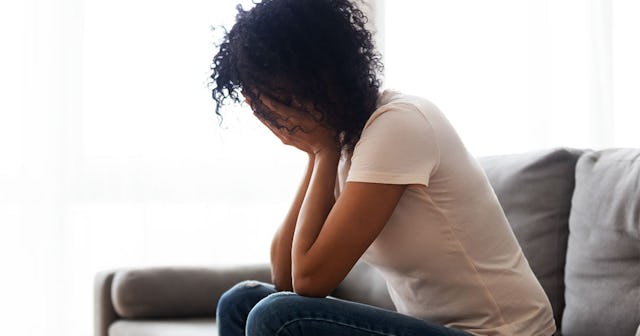Why New Zealand's Miscarriage Bereavement Law Is So Impactful And Necessary

I had my second (but not my last) miscarriage over a decade ago. In that time, the grief has faded, but it never really goes away.
And yes, it is grief. Mothers who experience a miscarriage are, in fact, grieving. No, the grief isn’t the same for everyone. It isn’t even the same for each miscarriage. I experienced pregnancy loss three times and each time was different. My first — a very early miscarriage (which could be called a chemical pregnancy) felt more like a surprise. I didn’t know what to feel. I had lost something even before I knew it was mine, so the feeling was strange and surreal, but not necessarily sad.
My second miscarriage involved several doctor visits, weeks of hoping that things would “turn out alright,” and an eventual D&C after my doctor warned me that waiting for the miscarriage to happen on its own would result in a substantial loss of blood and possibly a trip to the hospital in an ambulance. I grieved, hard, after that one. But I did so quietly. I was a stay-at-home mom at that point, so I didn’t need to tell co-workers or a boss. Still the pain felt all consuming sometimes. I basically survived on long walks with my dogs and toddler son, reading way too many self-help books, and plunking my son in front of the tv to watch Go Diego Go.
It was awful, but what made it worse, was pretending that something monumentally terrible hadn’t just happened. Miscarriages are quite common, after all, so shouldn’t we “just get over it”?
Well, no. No, we shouldn’t.
That’s why efforts like New Zealand’s new miscarriage bereavement leave legislation are so important – not just because of the financial impact it will have for many families — which can not be overstated — but also because it acknowledges the grief that follows a pregnancy loss.
“The bill will give women and their partners time to come to terms with their loss without having to tap into sick leave. Because their grief is not a sickness. It is a loss. And loss takes time,” Ginny Andersen, the politician who proposed the bill, told local network TVNZ in a statement.
Hagen Hopkins/Getty
“I hope this bill will go some way in recognizing the need for time and space to deal with the imaginable grief that comes with losing a pregnancy,” she added.
I hope so too. I hope this law and the attention it is getting helps convince not just U.S. lawmakers, but employers as well, that bereavement leave for miscarriage is important. Mental health experts agree.
“This is a both a real and symbolic recognition that miscarriage can be a grave bereavement for a woman and her partner,” Julia Bueno, a London-based psychotherapist, told TODAY Parents. “I hope other legislatures take note and build on this long overdue response to an otherwise disenfranchised experience.”
We’ve come a long way since the days of suffering miscarriages and stillbirths silently and alone, but there is still a certain cloud that hangs over the topic of miscarriage. There are certain places where it’s deemed acceptable to talk about miscarriage, and the workplace isn’t necessarily one of them.
I’ve been writing online for several years and there are few topics that I haven’t written about publicly, including my previous miscarriages. But, I have to admit, when I asked myself whether I would post this article on LinkedIn – a platform where many coworkers and colleagues might read it, I hesitated.
Catherine McQueen/Getty
But why? It is, in fact, about the workplace. The topic affects employment issues; it cuts to the core of career challenges for women. So why wouldn’t I share it?
Well, because it means publicly and openly acknowledging to my professional network – and not just my personal ones – that I had a miscarriage. Several of them, in fact. My apprehension to share these losses, even though they happened so long ago, in a professional setting is exactly why laws like this one are so essential. Because the more we hide this from the workplace, the more we cause harm to women and their capacity to be their full and authentic selves in the workplace.
Without acceptance of the profound impact that pregnancy loss has on a person, we are in some small way saying, your loss doesn’t matter. Your pain doesn’t count. Don’t talk about that here.
So women shoulder this pain silently. We press on. We pretend we aren’t crumbling. We get the job done. But a little piece of us dies as a result.
A successful workplace is one that doesn’t kill a tiny piece of its workers. It is one where people can bring their whole selves – their own feeling, grieving, joyful selves – so they can be their best selves and get their job done well.
This is why New Zealand’s law is so impactful. I am not diminishing the very real economic impact that the law has, but its strength is deeper and more fundamental than that. Because what this law is really saying to women and pregnant folks and once-were-pregnant folks is I see your pain. I see you as a full and whole person. Let’s take care of each other.
And there is nothing more powerful – or more necessary – than that.
This article was originally published on